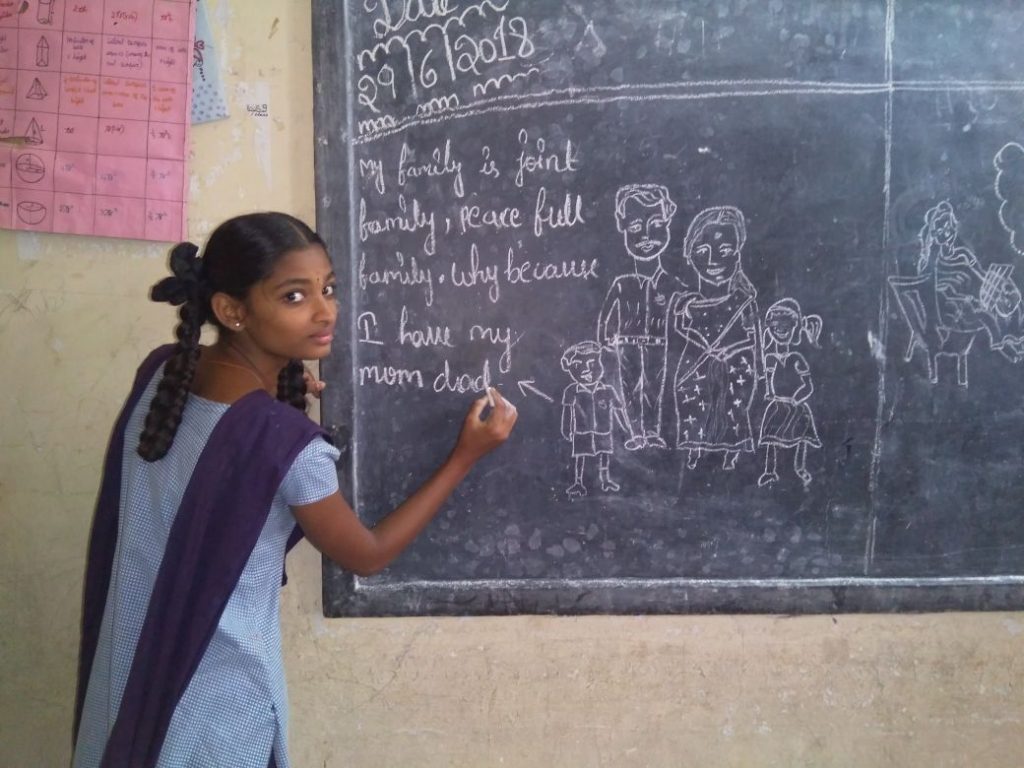Every child deserves the opportunity to learn, grow, and thrive through education. Yet, without additional measures and resources, it is estimated by the United Nations Department of Economic and Social Affairs that by 2030, over 300 million students globally will lack basic numeracy and literacy skills. These students will join the estimated 745 million adults who lack basic literacy skills (UNESCO, 2023). Literacy is one of the cornerstones of education, and evidence highlights the impact of literacy skills on the enjoyment of a range of human rights and quality of life, including the rights of girls and women.
This year’s International Literacy Day theme “Promoting multilingual education: Literacy for mutual understanding and peace” is a vital reminder that literacy is not simply about reading the word, but as the Brazilian Educator Paulo Freire noted ‘it is about reading the world’ (Freire, 1996). For this to be achieved the full realization of the right to education, and the implementation of SDG 4 in its entirety – including target 4.7 which- aims at ensuring that all learners acquire the knowledge and skills needed to promote sustainable development, including, among others, through human rights education – is vital. So not just literacy but human rights literacy.
Literacy is foundational to quality education and in turn future life opportunities, enabling individuals to access relevant written information and thereby make more informed decisions about their lives. Yet, millions of children and young people worldwide lack access to even basic education, with millions of adults – the majority of whom are women – denied even basic literacy skills, perpetuating cycles of poverty and inequality. At Amnesty International, we believe literacy is more than just reading and writing. Instead of adopting a rights-based approach, it has the potential to break cycles of poverty, empower people to make informed decisions and fuel social change.
Literacy is one of the targets of Sustainable Development Goal 4 (SDG 4), all of which, including 4.7, are critical to ensuring inclusive and equitable quality education and promoting lifelong learning opportunities for all by 2030. Amnesty International’s Human Rights Education plays an important part in dismantling the barriers preventing millions from not just accessing learning but quality education. More than half of all Amnesty national entities are promoting HRE within their country’s formal education systems to enrich learning. By promoting human rights literacy, HRE empowers individuals, including marginalized groups to become advocates for their rights.
Amnesty International’s Human Rights Education (HRE) around the globe is designed to build understanding and knowledge about human rights, empowering individuals to develop the skills and attitudes that promote equality, dignity, and respect across communities and societies worldwide. Through partnerships with local communities, schools, and grassroots movements, we provide educational resources and training that help people understand their right to, in and through education.

Amnesty International’s HRE initiatives have reached millions across regions, equipping them with essential human rights knowledge and skills. This broad engagement has empowered communities to recognize and challenge injustices, fostering a more informed and equitable society.
Amnesty’s HRE program seeks to address these gaps through innovative educational approaches. For instance, we’ve developed online platforms, mobile learning tools, and community-based workshops that provide literacy and human rights education to marginalized communities. By combining literacy education with human rights advocacy, we empower individuals to become agents of change within their communities.
Innovative Approaches to Human Rights Education and Literacy
Amnesty International uses creative methods to make human rights concepts more relatable. A great example is the “Words That Burn” project in the UK, where over 9,000 young people learned about human rights through poetry. This initiative helps foster a deeper understanding of civil and political rights, contributing to higher levels of literacy in human rights.
Another innovative approach is the Human Libraries, such as the one in Bulgaria, where refugees share their personal experiences with local communities. By using storytelling, these human libraries promote empathy, diversity, tolerance, and understanding, enhancing community literacy about the challenges faced by marginalized groups.
At Amnesty International, we believe in the transformative power of education. Through our HRE work, we continue to work toward a future where everyone can learn and succeed regardless of their background. Literacy is not just about reading and writing — it is about empowerment, advocacy, and the ability to shape a better world where people can learn and understand their rights.


